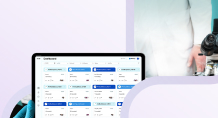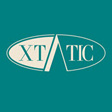Behavioral health is part of people’s overall wellness and it impacts how individuals think, feel, and act. Healthcare practitioners are using behavioral health software to improve patient care, speed up procedures, and aim for better results as the need for mental health treatments rises.
Behavioral health software solutions help mental health practitioners efficiently manage patient data, clinical documentation, and treatment plans. This article examines how the software transforms patient-clinician interactions in therapy and discusses relevant regulatory standards as well as potential future innovations.
What is behavioral health software
Behavioral health software is a technology platform designed to support mental health services by integrating digital tools, data management systems, and secure cloud infrastructure.
It uses electronic health records (EHR) tailored for behavioral health to store, retrieve, and analyze patient data efficiently. The software incorporates data encryption, role-based access controls, and automated compliance checks to protect sensitive information and comply with HIPAA.
Behavioral health practice software often includes AI-powered analytics, telehealth features, and digital documentation. These tools enhance clinical workflows, streamline administrative tasks, increase provider efficiency, and improve patient care.
Main functionalities of behavioral health software solutions
Behavioral health software includes specialized digital platforms used by mental health and behavioral health professionals to manage all the patient related documentation and treatment plans.
Some of the features of this software are:
- Progress patient notes;
- Secure messaging;
- Patient portals, and others.
These solutions assist healthcare providers in improving the standard of treatment. Incorporating this software enables more structured, effective, and patient-centered care.
Below are the key functionalities commonly included in behavioral health software:
- Electronic Health Record (EHR) integration: Electronic Health Records (EHRs) store patient medical histories, diagnoses, and progress notes. Behavioral health software makes this information accessible and ensures that mental health practitioners have centralized access to relevant data. A doctor can review past therapy sessions and adjust a patient’s treatment plan based on their current mental health needs.
- Practice management: This feature reduces administrative workload and simplifies tasks like scheduling appointments, processing payments, and managing patient information. By automating patient reminders, therapists can decrease no-show rates and improve clinic productivity.
- Clinical documentation: Software vendors provide tools and templates to document patient consultations and track therapy progress. These notes are easily accessible during follow-up visits, ensuring continuity of care. Counselors can efficiently review past interventions and update session notes as needed.
- Patient portals: Patients can log into secure portals to connect with their care providers, check upcoming appointments, and view their treatment plans. This access helps them stay more involved in their care. For example, a patient can share feedback on how a new treatment is working or reflect on their progress toward therapy goals.
- Telemedicine: Integrating video conferencing with behavioral health software allows providers to offer remote therapy sessions. This is especially helpful for patients in remote areas or those who can’t attend in-person appointments. A psychiatrist can conduct regular follow-ups through video calls, eliminating the need for patients to travel.
- Outcome tracking: Clinicians can evaluate the effectiveness of therapies using tools that track and report patient outcomes over time. By gathering data from self-reports and standardized assessments, they can monitor progress. For instance, a psychologist might use this feature to track a patient’s improvements in anxiety or depression symptoms over several months.
- Compliance and security: HIPAA-compliant behavioral health software ensures patient data is securely transmitted and stored. Features like role-based access controls and encryption protect sensitive information from unauthorized access. Confidential therapy notes are only accessible to those with proper authorization.
- Medication management: This feature streamlines managing patient prescriptions by tracking dosages, electronically prescribing medications, and alerting patients when refills are due. A psychiatrist can ensure patients adhere to their treatment plans and set reminders for medication reviews.
- Secure messaging: Many software platforms include encrypted messaging and allow safe communication between clinicians and patients outside of traditional sessions. For example, a patient can inform their therapist about a change in mood or improved mental well-being, enabling timely support.
- Data analytics: Providers can analyze large patient datasets to identify trends, evaluate treatment effectiveness, and make data-driven decisions. For instance, when treating conditions like PTSD or ADHD, clinicians can determine which therapies show the highest success rates, helping them refine treatment plans.
- Mobile access: Many platforms offer mobile apps or mobile-optimized interfaces, allowing both patients and clinicians to access and update information on the go. Patients can review their treatment plans directly from their phones, while therapists can check progress notes before appointments.
Together, these features boost patient engagement, streamline operations for mental and behavioral health practices, and improve overall care quality. This software solution helps medical professionals work more efficiently by automating many time-consuming tasks.
Ultimately, this allows them to focus more on patient needs. It also empowers patients to play a more active role in their own mental and behavioral health journey.
Opportunities for enhanced therapy solutions
Behavioral health software is reshaping how mental and behavioral health services are delivered. The paragraphs below explore the opportunities these solutions offer for an efficient and profitable practice.
Personalized treatment planning
A core feature of behavioral health software worth detailing is personalized treatment planning. Individualized care is essential because each patient has unique mental or behavioral factors affecting their health needs. With behavioral health software, behavioral health providers can create customized treatment programs that reflect each patient’s specific needs and symptoms.
Mental health EHR software enables practitioners to include medication management, therapy alternatives, and interventions. This advancement is possible by utilizing integrated practice management systems. Behavioral health EHR software encourages cooperation between patients and mental health providers, which improves treatment adherence and results.
Physicians create personalized care plans by considering a patient’s lifestyle, mental health challenges, and medical history. For example, a therapist working with a patient experiencing depression can track progress and adjust the treatment plan as symptoms change. This approach is especially effective when managing both medication and cognitive-behavioral therapy (CBT), allowing for timely adjustments to enhance patient outcomes.
These software tools also enable real-time adjustments to treatment plans based on clinical assessments and patient feedback. For instance, if an anxious patient responds well to mindfulness exercises but experiences difficulties with medication side effects, the program allows therapists to promptly modify the plan. This ensures that patient-centered care stays responsive and adapts to the patient’s evolving needs.
Data-driven decision making
Access to extensive data has become invaluable across various industries, including mental health care.
Behavioral health software plays a crucial role in collecting and analyzing comprehensive patient data, thus enabling clinicians to make informed, data-driven decisions. It helps practitioners identify treatment patterns and assess the effectiveness of interventions. By analyzing clinical notes and tracking progress, the software allows for timely adjustments to treatment approaches and ensures more effective and personalized care.
Behavioral health practitioners can track patient progress and adjust treatment strategies in real time through comprehensive reporting options. This ensures patients receive optimal care and allows clinicians to monitor progress over time. By making data-driven decisions, clinicians enhance the quality of mental health treatments and improve their medical practices.
For example, software tools allow a therapist conducting group therapy to monitor patient progress closely. The therapist might observe that patients who participate in cognitive-behavioral therapy (CBT) sessions combined with meditation show quicker improvement than those relying solely on medication. Analyzing clinical documentation, including patient responses to various therapeutic strategies, helps assess the effectiveness of CBT.
These insights allow the therapist to adjust treatment plans by incorporating more CBT and mindfulness exercises for future patients with similar symptoms. If the data shows that younger patients respond well to digital tools, the therapist can include smartphone apps to track progress in personalized treatment plans.
By consistently evaluating patient outcomes, mental health professionals can deliver more targeted, evidence-based interventions.
Mental health telemedicine
Telemedicine has transformed mental health care in recent years by greatly expanding access to therapy, especially for those in rural areas. Mental health practitioners can now offer virtual consultations using behavioral health software with telemedicine features. This approach removes the need for in-person visits, ensuring patients receive timely therapy tailored to their needs.
Telemedicine is particularly beneficial for patients who face challenges such as transportation issues, mobility limitations, or the stigma associated with seeking mental health treatment. Behavioral health software bridges the gap between patients and clinicians by enabling secure, HIPAA-compliant virtual therapy sessions. This approach supports continuous care, regardless of location, and allows more people than ever to access behavioral health services.
In between sessions, the therapist can check in with the patient using the software’s secure messaging feature, offering extra assistance when the patient encounters some difficult circumstances. Telemedicine is especially effective in patients struggling with social anxiety or having difficulty opening up.
Additionally, the patients may monitor their progress and take a more active role in their mental health journey, by using the patient portal to access their treatment plan and progress notes. This makes the therapy more effective in the long-term. Overall, telemedicine helps the patient make considerable progress without requiring travel, which lowers barriers to care and ensures ongoing treatment.
Outcome tracking and reporting
In addition to personalized planning, data-based decisions, and remote therapy, behavioral health software excels at tracking and reporting outcomes. It allows clinicians to monitor patient progress at different stages of treatment and adjust approaches to improve results.
Behavioral and mental health software allows practitioners to evaluate both short-term and long-term outcomes with tools like global assessments, clinical notes, and patient interaction records. These insights help clinicians refine treatment plans, adjust care strategies, and generate detailed reports to improve patient outcomes.
Some platforms enable mental health clinicians to follow patient progress over time using built-in assessments and progress notes. Such a platform offers features that help a psychologist treating PTSD patients. It can regularly deliver outcome assessment scales, like the PTSD Checklist (PCL-5), at predetermined intervals during therapy.
The software generates reports based on these assessments, allowing therapists to visually track patient progress or setbacks in real time. This data-driven approach lets clinicians adjust treatment plans as needed for ongoing progress..
Compliance and regulatory considerations
A critical aspect of mental health practice is adhering to regulations like the Health Insurance Portability and Accountability Act (HIPAA). Behavioral health software is designed to ensure compliance and securely manages patient data. These solutions help clinics protect sensitive information by using encrypted patient portals and secure communication channels to maintain data privacy.
In addition, the software automates tasks like medical billing and paperwork to ensure activities comply with national and state laws. This reduces the risk of fines or other penalties. The robust compliance features of behavioral health practice management software help healthcare professionals uphold credibility and build trust in patient care.
HIPAA compliance requires that patient data is securely transmitted and stored to protect privacy. This includes therapy notes and electronic medical records. Software platforms must use encryption, role-based access controls, and secure data transmission to prevent unauthorized access to sensitive information.
42 CFR Part 2, which particularly safeguards the privacy of patient records pertaining to substance use disorders, is another significant regulation. To protect patient anonymity and stay out of trouble with the law, behavioral health software must make sure that all data sharing conforms with these stringent government rules. (1)
Innovations in behavioral health software
New developments in behavioral health software are reshaping mental health care as technology advances. For example, cloud-based solutions provide flexibility and convenience by allowing mental health clinicians at healthcare facilities to securely access patient data from any location. This ensures a high level of data security to protect sensitive information while improving patient care..
Additionally, mental health EHR software now uses AI to offer predictive analytics that identify potential risks, recommend course corrections, and enhance clinical outcomes. These innovations align with current market trends as healthcare providers increasingly seek tools to optimize patient treatment.
Mobile devices and apps also boost patient engagement by helping individuals track their mental health and maintain real-time communication with their healthcare providers.
AI-driven healthcare chatbots integrated into behavioral health platforms provide round-the-clock support between therapy sessions. These chatbots answer common mental health questions, suggest coping strategies, and guide users through mindfulness exercises to keep patients engaged.
Wearable device integration is another key trend. By connecting software with health trackers, clinicians can monitor patients’ physical and mental health metrics, such as heart rate and sleep patterns, in real time. This data helps practitioners understand how daily routines affect mental well-being, enabling more personalized interventions.
Discover how we can help outsource Healthcare projects efficiently Speak to an expert today, and see how our on-demand IT talent and augmented teams can efficiently deliver value at every step of your roadmap.

Conclusion
In summary, the delivery of mental health services is transforming through the use of advanced therapy software. This software enables clinicians and patients to collaborate more effectively for better outcomes by integrating features such as secure messaging, telemedicine, and progress tracking. This not only improves the quality of care but also makes mental health treatment more accessible to those in need, no matter where they are.
For mental health practices and healthcare organizations, these technologies simplify each patient encounter by enhancing communication and treatment planning. The integration of digital tools helps bridge the gap between mental and physical health. This promotes a more comprehensive approach to patient care.
The future of behavioral health treatment looks promising as advancements like wearable device integration and AI-driven technologies advance. These innovations ensure patients remain the central focus and help clinicians provide more personalized and effective interventions in their medical facilities.

















